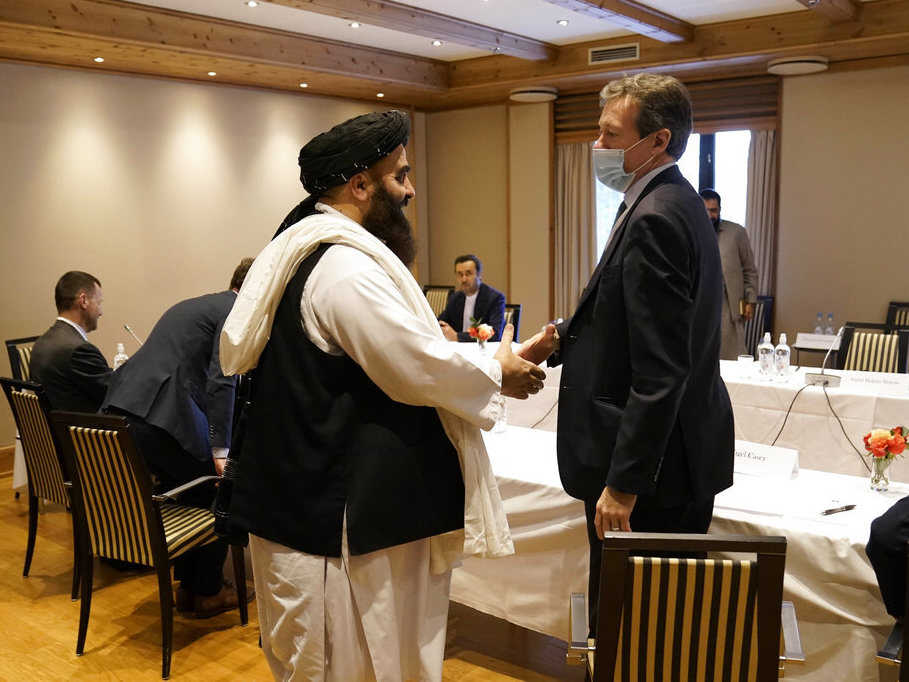In a significant development, Taliban leaders engaged in their first official talks with United States officials in Qatar since the group’s return to power in Afghanistan two years ago. Over the course of two days, the delegations convened in the Qatari capital, Doha, to discuss crucial issues concerning the Afghan nation. Among the key topics addressed during the meeting were the economy, human rights, and the alarming problem of narcotics trafficking. The talks aimed to build confidence and find common ground between the two parties, amidst challenges faced by Afghanistan since the US’s withdrawal and the Taliban’s takeover.
Economy and Financial Assets
During the talks, the two sides delved into discussions concerning the Afghan economy and financial assets held abroad. Afghanistan’s Ministry of Foreign Affairs spokesman, Abdul Qahar Balkhi, revealed that confidence-building measures, such as lifting sanctions and travel bans, were among the topics discussed. Additionally, they explored the possibility of the return of Afghan central bank assets held in foreign accounts. Notably, since its return to power in August 2021, the Taliban has not been formally recognized by any country, leading to complex economic challenges for the nation.
Human Rights and Social Issues
The talks also focused on addressing human rights concerns in Afghanistan, which have garnered international condemnation. Particular attention was given to the restrictions imposed on women’s education, with the Taliban facing criticism from various Muslim-majority countries. Representatives from the US, including Special Representative Thomas West and Special Envoy for Afghan Women, Girls, and Human Rights Rina Amiri, expressed “grave concern” over detentions, media crackdowns, and restrictions on religious practices. Urging the Taliban to reverse bans on girls’ secondary education and women’s employment, the US officials emphasized the importance of upholding fundamental human rights.
Combating Narcotics Trafficking
Another critical issue discussed during the talks was the pressing challenge of narcotics trafficking in Afghanistan. The Taliban’s previous use of opium cultivation to fund their armed struggle has been a global concern. However, positive developments were noted during the talks, as the authorities reported a “significant decrease in cultivation” of poppies in the current growing season. By banning the crop entirely, the Taliban demonstrated a commitment to address the narcotics trade and its adverse impacts on the nation and the world. The US expressed readiness to continue dialogue on counternarcotics efforts, acknowledging the potential for cooperation in combating this menace.
Throughout the discussions, both sides engaged in a constructive dialogue to find solutions to Afghanistan’s complex challenges. Key issues, such as the economy, human rights, and narcotics trafficking, were at the forefront of the talks. With the country facing a humanitarian crisis and grappling with its identity after the US’s withdrawal, these discussions held considerable significance. Despite facing international condemnation, the Taliban leaders demonstrated a willingness to engage in official talks with the US. Confidence-building measures, including lifting sanctions and resolving financial issues, were central to the discussions.
On the subject of human rights, the US officials expressed strong concerns over the restrictions on women’s education and employment. They urged the Taliban to uphold the basic rights and freedoms of Afghan citizens. Additionally, the talks addressed the alarming problem of narcotics trafficking, as the Taliban took steps to ban poppy cultivation, aiming to break free from its past involvement in the narcotics trade.
The two-day official talks between the Taliban and US in Qatar marked a significant step towards addressing the challenges faced by Afghanistan since the Taliban’s takeover. The discussions on economy, human rights, and narcotics trafficking have the potential to pave the way for much-needed stability and progress in the war-torn nation. While the road ahead remains challenging, these talks offer hope for constructive engagement and cooperation between the parties involved. As Afghanistan seeks recognition and support from the international community, these discussions become crucial in charting a path towards a more secure and prosperous future.















